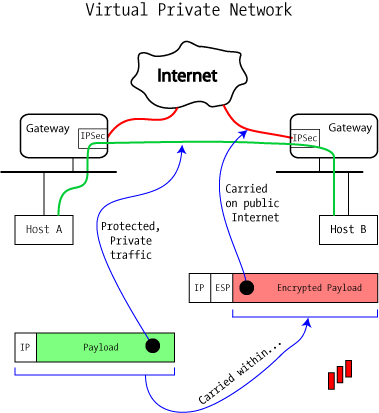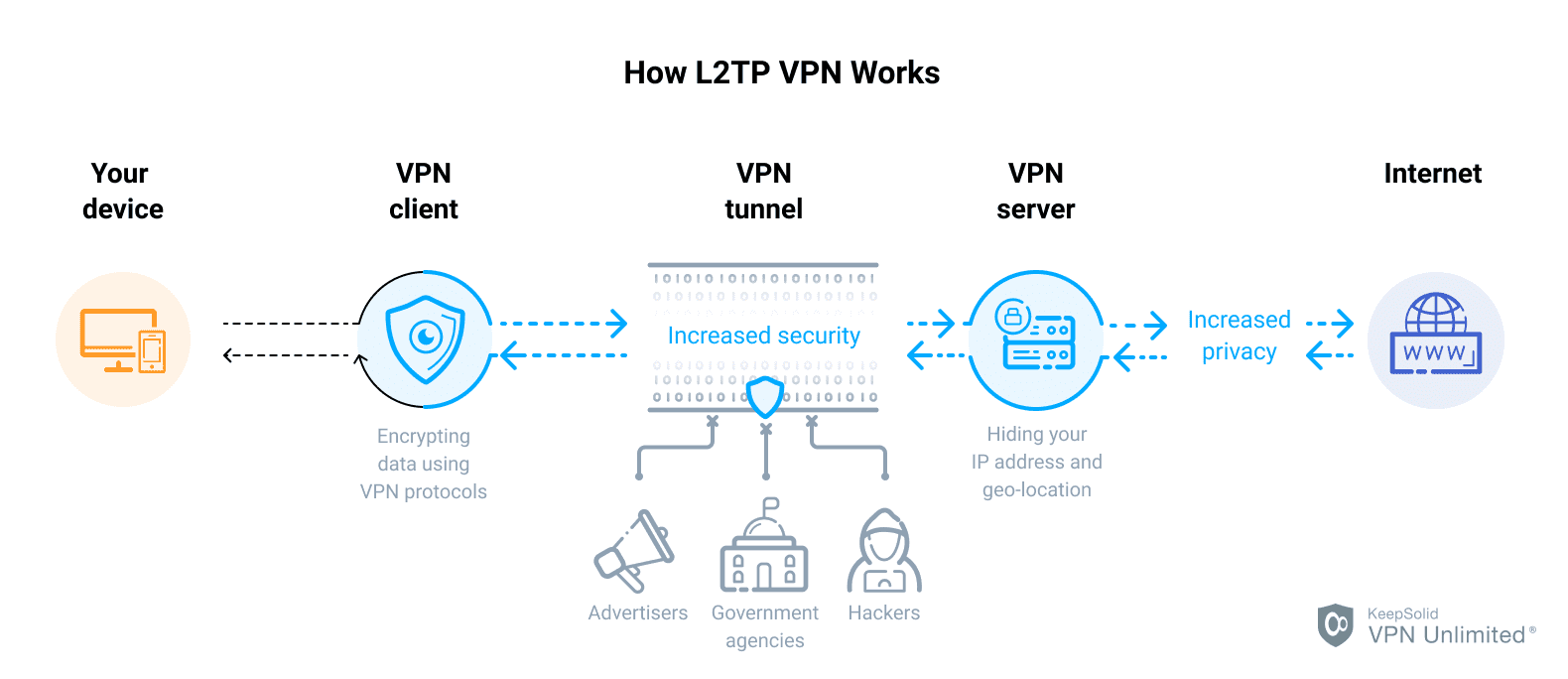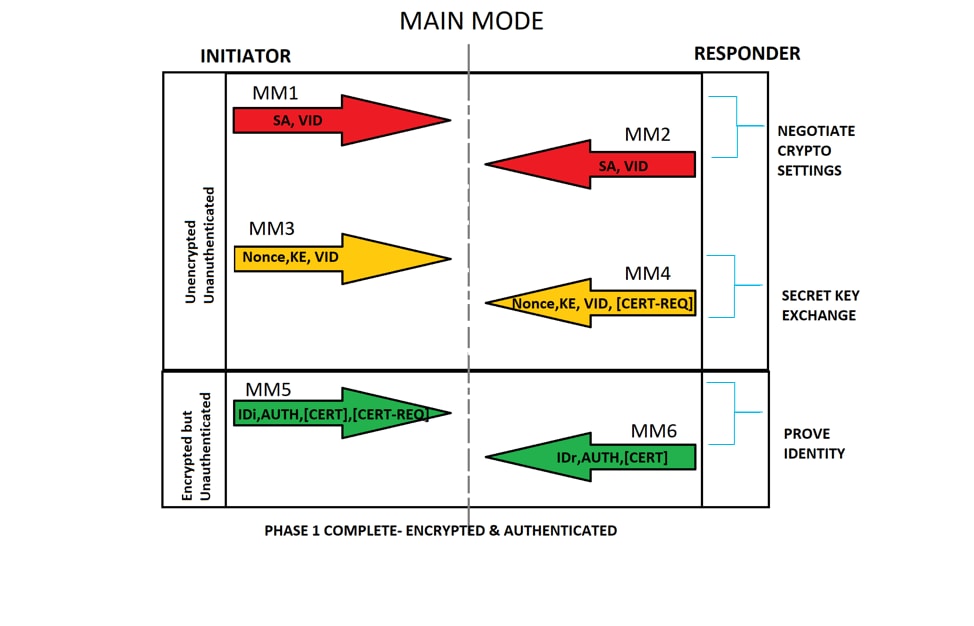Featured
Table of Contents
- – What Is An Ipsec Vpn?
- – What Is Ipsec (Internet Protocol Security)?
- – Ipsec Vpn: What It Is And How It Works
- – Data Encryption And Authentication - Ipsec
- – 1. Define Ipsec? 2. What Ipsec Used For? 3. W...
- – Ssl Vpns Vs. Ipsec Vpns: Vpn Protocol Differ...
- – Ssl Vpns Vs. Ipsec Vpns: Vpn Protocol Differ...
What Is An Ipsec Vpn?
IPsec confirms and secures information packages sent over both IPv4- and IPv6-based networks. IPsec protocol headers are found in the IP header of a packet and define how the data in a packet is managed, including its routing and shipment throughout a network. IPsec includes a number of components to the IP header, including security info and several cryptographic algorithms.

ISAKMP is specified as part of the IKE procedure and RFC 7296. It is a structure for key facility, authentication and settlement of an SA for a safe and secure exchange of packets at the IP layer. In other words, ISAKMP defines the security criteria for how two systems, or hosts, interact with each other.
They are as follows: The IPsec process begins when a host system recognizes that a packet needs protection and should be sent utilizing IPsec policies. Such packages are considered "intriguing traffic" for IPsec functions, and they activate the security policies. For outbound packets, this suggests the proper encryption and authentication are used.
What Is Ipsec (Internet Protocol Security)?
In the second action, the hosts use IPsec to negotiate the set of policies they will utilize for a protected circuit. They also confirm themselves to each other and set up a safe and secure channel between them that is utilized to work out the way the IPsec circuit will secure or verify information sent across it.

After termination, the hosts deal with the private keys used throughout information transmission. A VPN essentially is a personal network implemented over a public network. Anyone who connects to the VPN can access this private network as if directly connected to it. VPNs are commonly used in businesses to enable employees to access their corporate network remotely.
Usually utilized between secured network gateways, IPsec tunnel mode enables hosts behind one of the entrances to communicate safely with hosts behind the other gateway. Any users of systems in an enterprise branch workplace can firmly connect with any systems in the main office if the branch workplace and primary workplace have safe and secure gateways to act as IPsec proxies for hosts within the particular workplaces.
Ipsec Vpn: What It Is And How It Works
IPsec transportation mode is utilized in cases where one host needs to communicate with another host. The two hosts work out the IPsec circuit directly with each other, and the circuit is usually torn down after the session is total.
With an IPsec VPN, IP packets are protected as they take a trip to and from the IPsec gateway at the edge of a personal network and remote hosts and networks. An SSL VPN safeguards traffic as it moves between remote users and an SSL gateway. IPsec VPNs support all IP-based applications, while SSL VPNs just support browser-based applications, though they can support other applications with customized advancement.
See what is best for your company and where one type works best over the other.
Data Encryption And Authentication - Ipsec
Each IPsec endpoint confirms the identity of the other endpoint it desires to interact with, ensuring that network traffic and information are only sent out to the desired and allowed endpoint. Despite its terrific energy, IPsec has a few concerns worth pointing out. First, direct end-to-end communication (i. e., transmission approach) is not always offered.
The adoption of different regional security policies in large-scale distributed systems or inter-domain settings might posture extreme issues for end-to-end interaction. In this example, presume that FW1 needs to inspect traffic material to spot invasions and that a policy is set at FW1 to reject all encrypted traffic so regarding impose its content evaluation requirements.
Users who utilize VPNs to remotely access a personal company network are placed on the network itself, providing the very same rights and functional abilities as a user who is connecting from within that network. An IPsec-based VPN might be developed in a range of methods, depending on the requirements of the user.
1. Define Ipsec? 2. What Ipsec Used For? 3. What Are The ...
Because these elements may stem from various providers, interoperability is a must. IPsec VPNs allow smooth access to business network resources, and users do not necessarily need to use web access (access can be non-web); it is for that reason a service for applications that require to automate communication in both ways.
Its framework can support today's cryptographic algorithms along with more effective algorithms as they appear in the future. IPsec is a necessary element of Internet Protocol Version 6 (IPv6), which business are actively deploying within their networks, and is strongly suggested for Web Protocol Variation 4 (IPv4) applications.
It supplies a transparent end-to-end secure channel for upper-layer protocols, and applications do not need modifications to those protocols or to applications. While having some disadvantages connected to its intricacy, it is a fully grown protocol suite that supports a range of file encryption and hashing algorithms and is highly scalable and interoperable.
Ssl Vpns Vs. Ipsec Vpns: Vpn Protocol Differences ...
Like VPNs, there are many ways an Absolutely no Trust design can be carried out, but solutions like Twingate make the procedure substantially simpler than needing to wrangle an IPsec VPN. Contact Twingate today to get more information.

IPsec isn't the most common internet security procedure you'll use today, but it still has a crucial role to play in securing internet communications. If you're using IPsec today, it's probably in the context of a virtual personal network, or VPN. As its name indicates, a VPN creates a network connection between 2 devices over the public internet that's as secure (or practically as safe) as a connection within a personal internal network: most likely a VPN's most popular use case is to enable remote workers to access secured files behind a corporate firewall program as if they were working in the office.
For the majority of this post, when we say VPN, we mean an IPsec VPN, and over the next numerous sections, we'll discuss how they work. A note on: If you're looking to establish your firewall to permit an IPsec VPN connection, make sure to open UDP port 500 and IP ports 50 and 51.
Ssl Vpns Vs. Ipsec Vpns: Vpn Protocol Differences ...

As soon as this has actually all been set, the transportation layer hands off the information to the network layer, which is primarily managed by code operating on the routers and other elements that comprise a network. These routers pick the route private network packages require to their location, however the transport layer code at either end of the interaction chain doesn't need to understand those information.
On its own, IP doesn't have any built-in security, which, as we noted, is why IPsec was developed. Today, TLS is built into virtually all internet browsers and other internet-connected applications, and is more than enough protection for daily web usage.
That's why an IPsec VPN can add another layer of security: it involves protecting the packages themselves. An IPsec VPN connection begins with establishment of a Security Association (SA) in between two interacting computer systems, or hosts. In basic, this includes the exchange of cryptographic keys that will enable the celebrations to secure and decrypt their communication.
Table of Contents
- – What Is An Ipsec Vpn?
- – What Is Ipsec (Internet Protocol Security)?
- – Ipsec Vpn: What It Is And How It Works
- – Data Encryption And Authentication - Ipsec
- – 1. Define Ipsec? 2. What Ipsec Used For? 3. W...
- – Ssl Vpns Vs. Ipsec Vpns: Vpn Protocol Differ...
- – Ssl Vpns Vs. Ipsec Vpns: Vpn Protocol Differ...
Latest Posts
How Does A Vpn Work?
10 Best Vpn Services Of 2023 - Top Vpns Rated By Experts
How To Keep Mobile Users Inside Your Corporate Vpn
More
Latest Posts
How Does A Vpn Work?
10 Best Vpn Services Of 2023 - Top Vpns Rated By Experts
How To Keep Mobile Users Inside Your Corporate Vpn